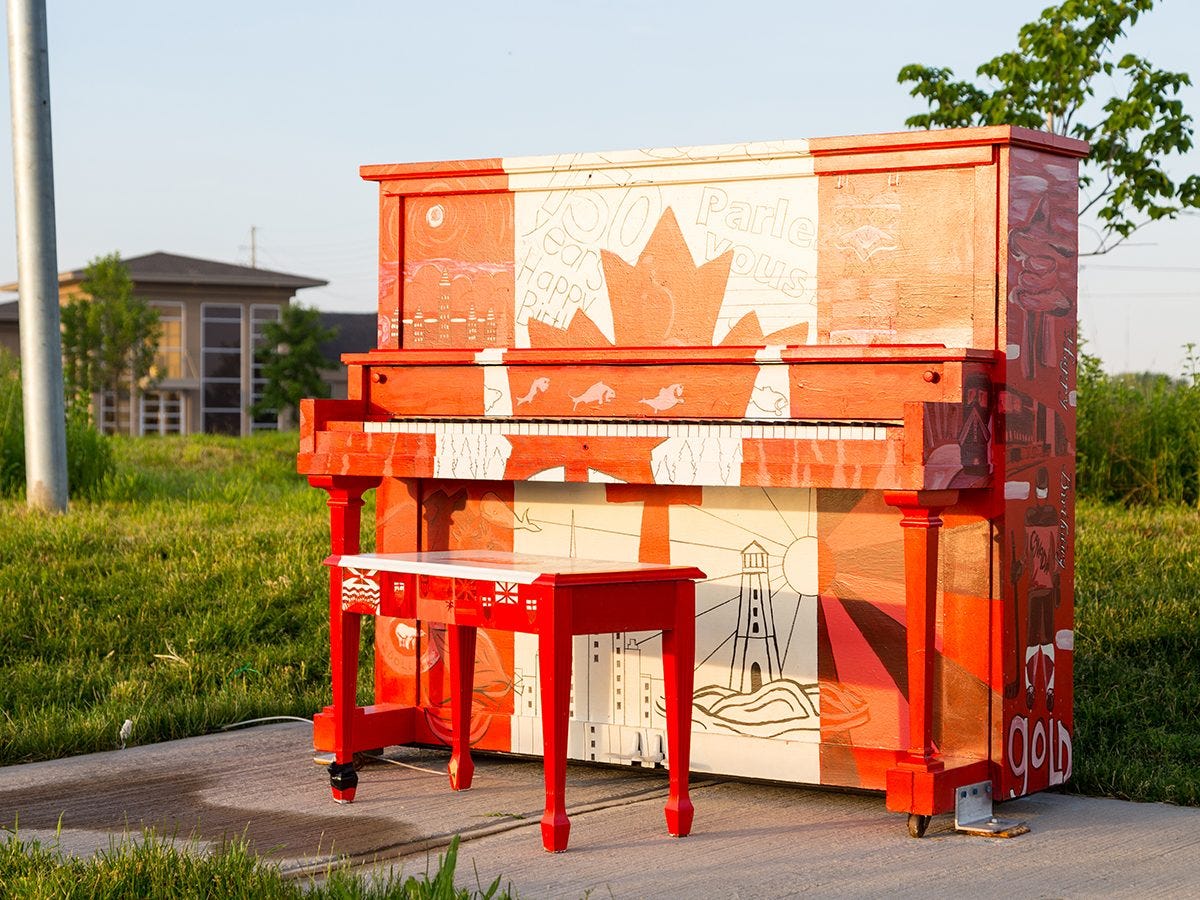What We All Agree On: The Return of the Canadian Nation
Through the election campaign and the long night of results, I’ve been singing Flower of Scotland to myself. It’s the anthem of another country but the story is our story in this latest chapter.
Trump, playing the role of King Edward, with his threats of tariffs, annexations, and border chaos, played the part of the great external force — powerful, dismissive, convinced that Canada would bend to his will or simply fade into his empire.
Instead, Trump sharpened something in Canadians that had long been dull from comfort: the memory that nations aren’t accidents.
They are acts of will.
This election doesn’t mean everything is fixed.
But it does mean the spirit isn’t dead.
In Flower of Scotland, hope isn’t loud. It’s not a brass-band kind of hope. It's a whisper:
"We can still rise now, and be the nation again."
Canada’s hope feels the same way today.
It’s not a gaudy nationalism. It’s not blaring flags or angry crowds.
It’s quieter: a hope built out of ballots, conversations, stubborn pride, and an unspoken refusal to be erased.
We can still rise now.
We can still be the nation again.
The one big, beautiful takeaway from the 2025 election — bigger even than seat counts and leadership changes — is this:
We all agree on something again.
We didn’t pick a party or a leader so much as we picked a story. We painted a picture of Canada as a nation.
For the first time in a long time, Canadians, whether they voted Liberal or Conservative, seemed to agree on a fundamental truth:
Canada is a nation.
It has a culture.
It has a soul.
And it matters.
This might not sound revolutionary. But when you consider how far the official story had drifted, it is.
The Trudeau Era and the Post-National Dream
It was Justin Trudeau who, in a now-infamous 2015 interview with the New York Times, declared Canada to be the “first post-national state,” claiming it had “no core identity” and “no mainstream.”
At the time, this sounded daring. Worldly. A country with a flag but no fingerprints, a border but no binding story.
It fit the mood of the moment — a time when globalization felt like a rising tide lifting all boats, when identity politics were ascendant, and when history itself seemed, bizarrely, to be over.
In Trudeau’s Canada, multiculturalism wasn’t just a strength — it was the whole point. Nationhood, rootedness, tradition — these were seen not as treasures, but as barriers to progress. If you squinted hard enough, you could almost believe that being Canadian was simply being here, with no obligations, no story to share, just a polite presence in a well-managed hotel called Earth.
The Return
That idea is dead now.
It didn’t die in rage. It didn’t die in scandal.
It died when Canadians quietly, in millions of ballots, voted for a country they recognized — not just a place to live, but a place to love.
Mark Carney didn’t win by promising post-nationalism.
He won by almost silently painting Canada as a real country: classy, resilient, generous, and proud.
Pierre Poilievre — a big and bittersweet winner in this election, even as he lost his own seat — didn't gain ground by selling post-nationalism either.
He offered a vision, rougher around the edges, but equally rooted in the idea that Canada was — and is — something worth defending, not dissolving.
Even among those who voted NDP, Green, or Bloc, the common feeling pulsing under the surface was unmistakable:
We are a people.
We have a home worth looking after together.
We are not just a hotel lobby between oceans.
A New Chapter
This rediscovery isn’t just nostalgia.
It’s a living, breathing assertion that Canada’s best future will be built out of its history, not by pretending it never existed.
My hope is for creation, cultivation, and continuity.
That we will work to create and be a nation again.
That we will cultivate: grow, and build, and make, and look after enough for ourselves that we can be proud, and different, and have enough to share and help.
That we will feel a continuity between generations, between past, present, and future, that gives meaning and purpose to all we do.
The lessons of the First World War, the Great Depression, the Second World War, the long cold peace of the twentieth century — they aren’t burdens. They’re blueprints.
The Canadian identity that emerged after Vimy Ridge and the Progressive Era still fits today’s world:
Steady hands in a chaotic world.
Big hearts in a cynical age.
A belief that good government is possible, and that decency isn’t weakness.
This election wasn’t just about picking a Prime Minister.
It was about picking a story — the old, battered, beautiful story of Canada — up off the ground, dusting it off, and carrying it forward again.
For all our divisions, all our debates, all our gripes, we have just agreed, together, without shouting:
Canada is real.
Canada matters.
And it’s worth fighting for.






I agree, nicely stated. As long as we can stay open-hearted and thoughtful (rather than reactive) to our differences!
This is just Fantastic!!! Thank you!!